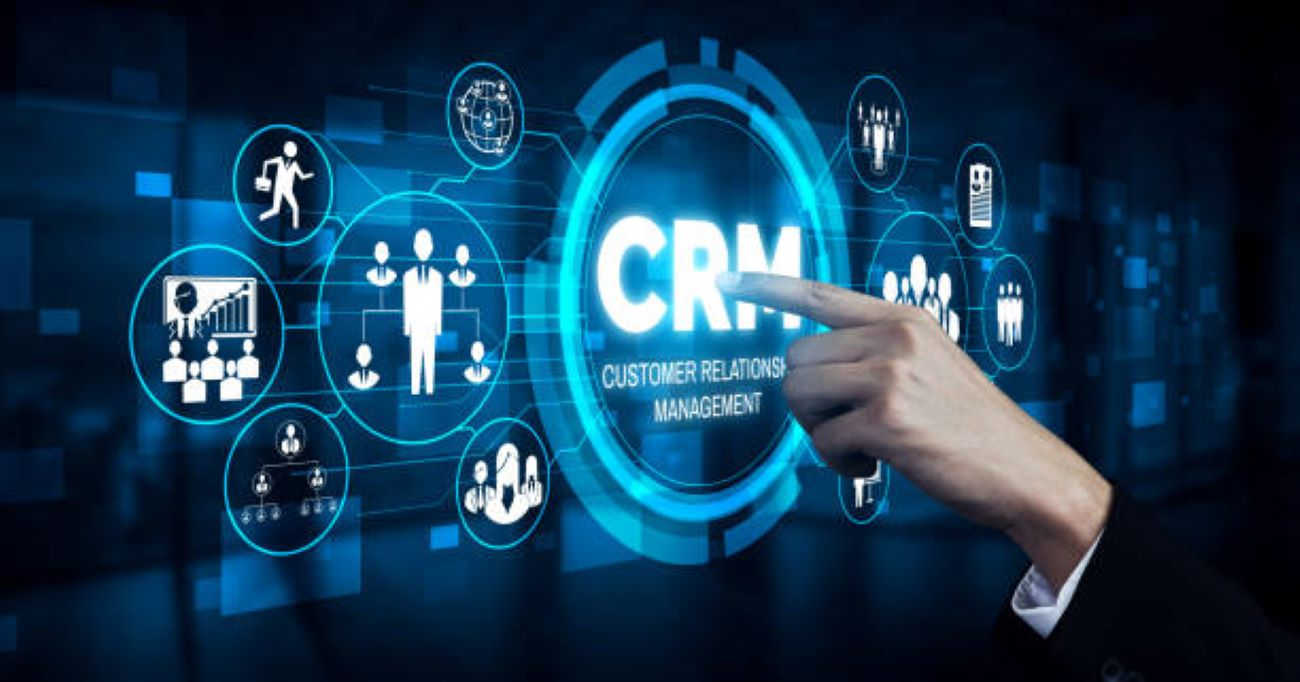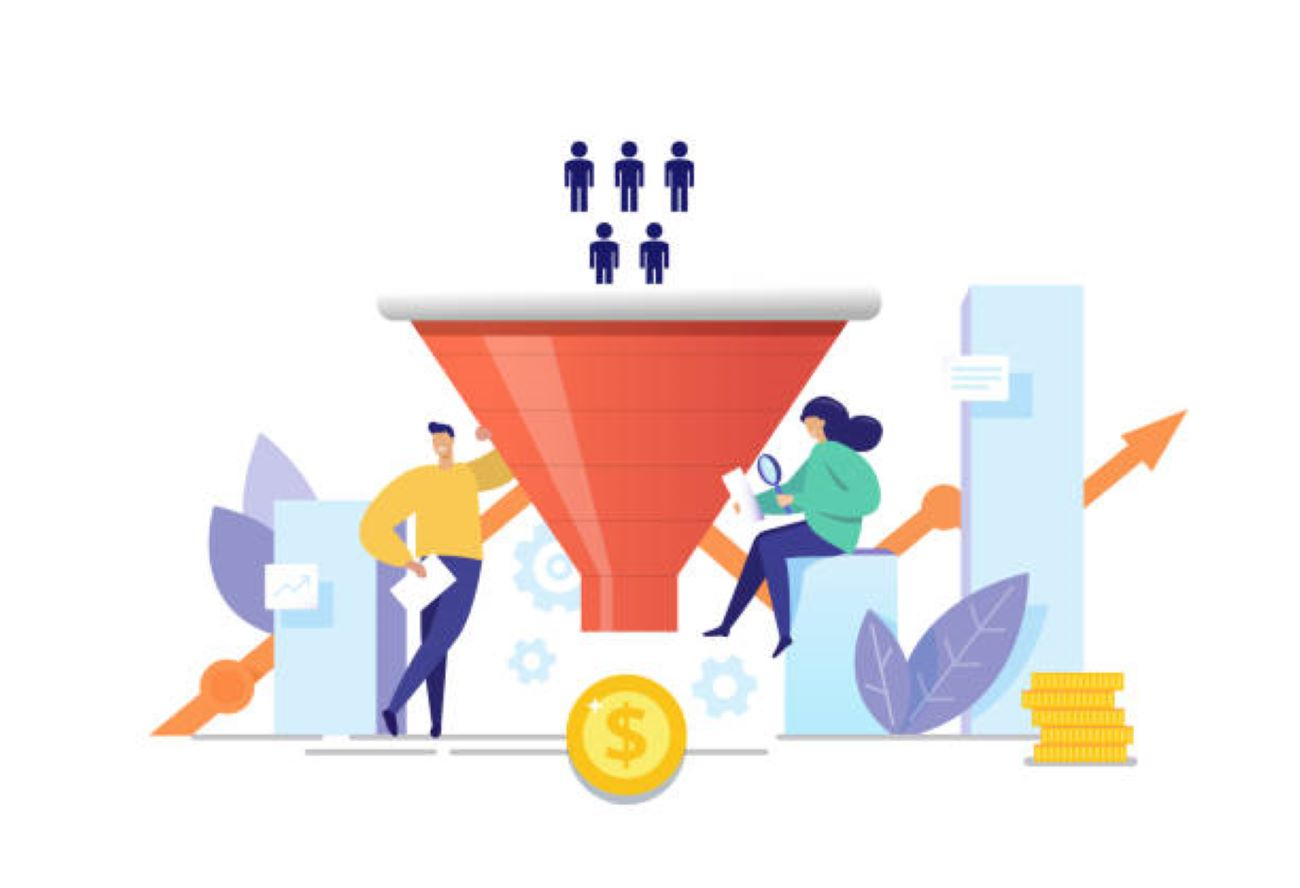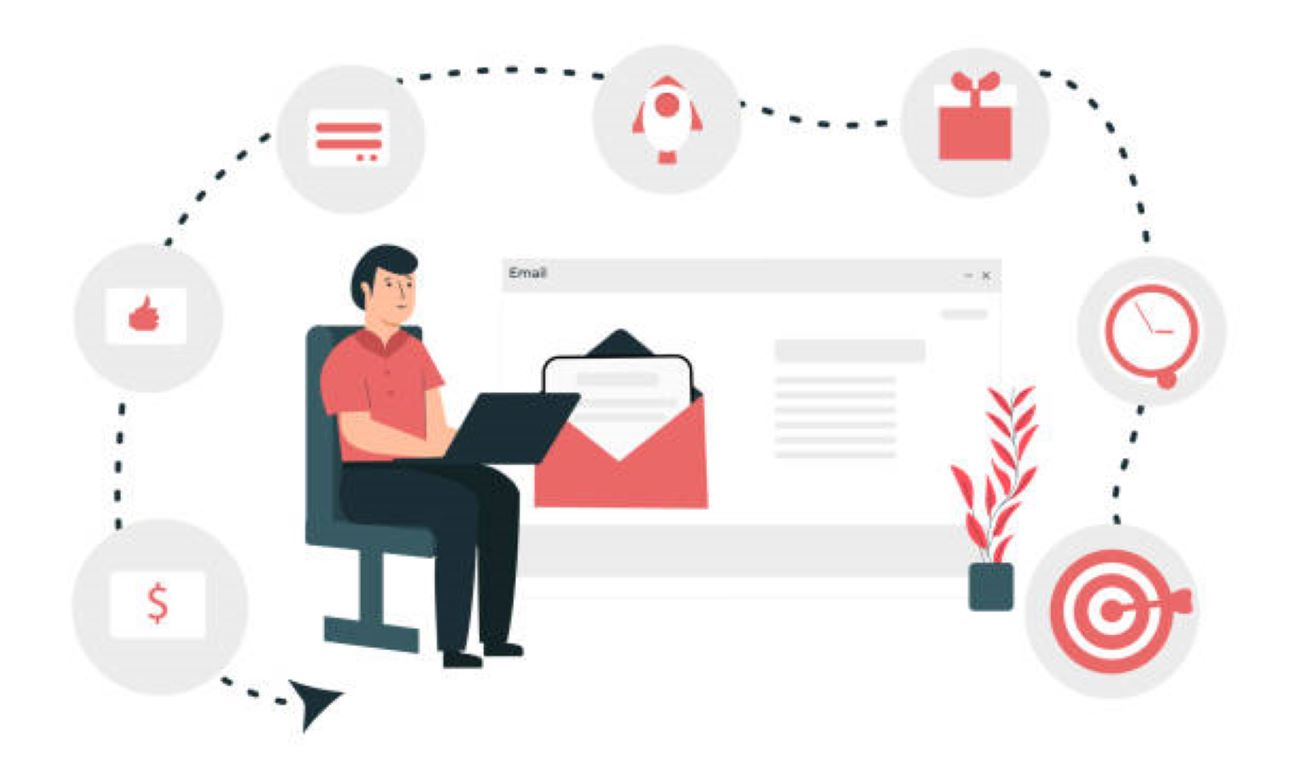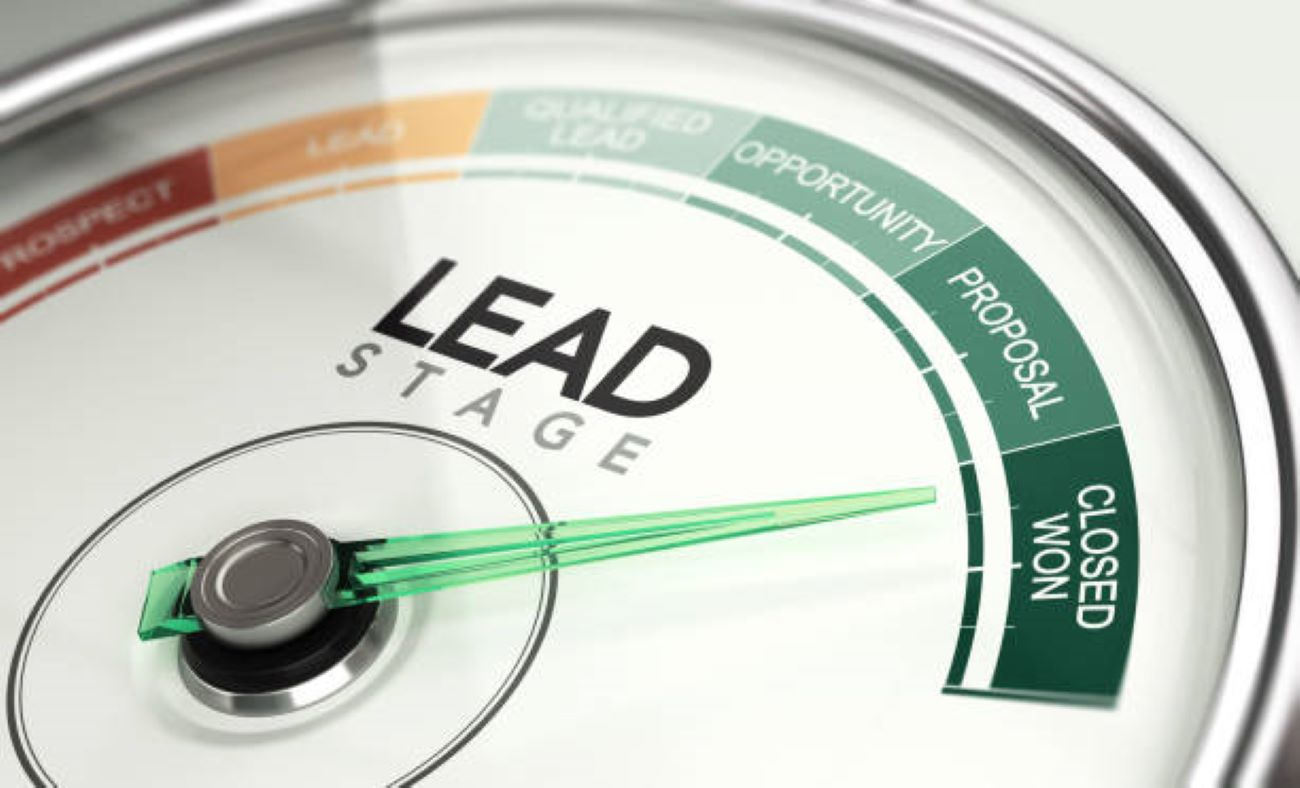In today’s digital world, where competition is fierce, and customers have multiple options, automation has become an essential tool for businesses. With a large customer base, managing sales and marketing by the teams (sales team and marketing team) manually becomes cumbersome and causes customer dissatisfaction. Sales and marketing teams can now automate mundane tasks, leading to greater efficiency and cost savings.
However, many business owners need to realize the critical difference between sales and marketing automation-both technologies are incredibly powerful but serve different functions in customer acquisition strategies. But it’s important to understand that both types of automation are distinct.
This blog post will provide a comprehensive overview of how they differ and why you should use them within your organization. By understanding the specifics of each type of automation technology, you can make informed decisions about which capabilities best fit your needs, resulting in improved customer engagement outcomes.
What is Sales Automation?
At its core, sales automation is a software solution that helps businesses automate core sales tasks. For example, it allows companies to streamline managing sales leads and customer data, automate email campaigns, workflow processes, and contact management tasks, and track results to understand customer behaviour better.
Sales automation CRM is a revolutionary tool designed to help streamline administrative tasks and accelerate the sales process, boosting productivity. Sales reps can use this automated software to quickly manage customer calls, emails, and scheduling, freeing their time for more pressing tasks.
Likewise, a sales team equipped with online sales automation tools can create complex sales pipelines quickly and drive productivity to increase their success rate.
Sales automation not only helps increase your team’s success rate through resource allocation but also reduces errors associated with manual processes, thus making it easier for sales reps to close deals efficiently.
Why do you need sales automation software?
To grow your business, you must manage the most leads without sacrificing personalization, brand identity, or responsiveness. Sales automation tools can increase lead generation reach through sales pipelines and provide customized interactions that enhance your brand. Plus, you gain more insight by automating sales processes in CRM.

A recent study conducted by Salesforce found that over 80 percent of businesses have implemented or are planning to implement sales automation shortly. The survey further revealed that the most popular use cases for sales automation included customer relationship management (CRM) integration, email marketing automation, lead qualification and scoring, and automated customer service.
How sales automation benefits businesses
Sales automation offers several key benefits to businesses of all sizes. Here are a few:
Streamlines lead management and customer data
Automatically assess a lead’s behaviours and assign them to the right salesperson. It would be tedious for someone to scan the whole database for accurate leads. Instead, the software will accomplish this in minutes. Curated lead lists allow salespeople to turn more customers into buyers.

By integrating sales automation tools, sales teams have unprecedented visibility into potential customers, taking advantage of lead scoring to identify sales-ready prospects and quickly begin their sales pipeline. As a result, sales organizations are better positioned to close deals faster, build customer relationships, and increase sales performance.
Increases Productivity
Sales automation tools can help teams to work smarter, not harder. For example, sales reps no longer need to spend hours sending emails manually or entering data into a database. Automation can drive more consistent sales cycles and ensure everything is included.
Sales automation tools can also increase customer service speed and accuracy. Automated sales software can help teams respond to customer queries and promptly address concerns, resulting in improved customer satisfaction and loyalty.
Improves Customer Relationships
Sales automation platforms can quickly establish relationships with customers and prospects. Automated tools enable businesses to personalize emails, build customer profiles, and track performance data to create better customer experiences. Additionally, sales teams can use automated software to automate their workflows, allowing them to focus on providing more value and building stronger relationships with customers.
Customer relationship software automated various sales activities, such as analyzing customer behavior and providing relevant customer information to a sales rep, providing the best customer experience.
Reduces Costs
Businesses can reduce costs by eliminating manual data entry, automating sales processes, and streamlining communication. Automation also saves time spent on tasks that don’t require human intervention while allowing sales reps to focus on the activities that do. This increases productivity and decreases operating costs.
Most repetitive tasks are automated, requiring fewer employees, thereby cutting costs and increasing efficiency.
Improves Accuracy
No matter how well-trained your sales team is, mistakes can happen when manually entering data, executing processes, and working on other administrative tasks. Automated software ensures that all the data entered is accurate, with no typos or errors. As a result, accuracy improves, and customers have more confidence in the company’s services.
Improves communication
Sales automation helps to ensure that the right people receive the correct information at the right time, improving communication.
Sales reps engage customers through various channels like emails, SMS, and calls with the help of automated software. It also sends automatic notifications when a customer takes action, such as signing up for a newsletter or requesting a quote. This keeps customers informed, ensuring they get all the essential information.
The following points lead to better communication:
– Automate customer data entry
– Personalize emails
– Automate lead scoring and qualification
– Track performance data
– Send automated responses to customer queries promptly
– Prioritize leads based on their behaviour/interests
– Create detailed customer profiles
Automates Record Creation
CRM automation software automates the creation of records for all prospects and their interactions with the company via various channels, including websites, forms/landing pages, email campaigns, and other media. As a result, sales teams need not work on adding these customer interactions manually; everything gets updated automatically, thereby eliminating the changes of errors and speeding up the process.
Assign tasks to your sales team.
Get rid of sales tasks that have accumulated. Instead, use sales automation to send tasks to sales teams, such as contacting prospects and setting up meetings.
Choose the best sales automation tool for more efficient results.
What is Marketing Automation
Marketing automation is a crucial tool for marketing and sales teams. It helps businesses increase efficiency by automating marketing tasks like sending emails, segmenting customer data, and tracking marketing performance with analytics.
It also streamlines marketing campaigns by automating tasks like web analytics and landing page creation. This helps marketing and sales teams save time, money, and resources on tedious manual processes.
A company can also use a marketing automation platform to collect leads, nurture them into customers, re-engage old customers for more purchases, and generate more referrals to improve marketing ROI significantly.
In short, marketing automation simplifies and optimizes marketing activities that would have been done manually – making it easier for marketing teams to focus on their growth strategies and deliver maximum impact from their campaigns.
For more detailed information about marketing automation. Visit How To Boost The Efficiency Of Your Marketing Automation Process.
Why do you need marketing automation software?
Marketing automation software is a must for modern companies. It helps maximize efficiency by crafting and distributing emails to track customer data and optimizing campaigns. With marketing automation in place, sales teams can spend more time closing deals and less time tediously creating marketing materials from scratch.

The software comes with various tools to help automatically create templates, build lead nurturing campaigns, analyze website traffic, measure the effectiveness of social media campaigns, and more. Investing in marketing automation software ensures that every process step is optimized without taking too much time from executives’ day-to-day tasks.
For maximum growth, choose the best sales automation software(CRM software) which helps sales team members utilize various automation features to track sales data(sales analytics and sales reports) to rapidly close more sales.
Marketing automation has become an invaluable tool for companies of all sizes, as it allows businesses to streamline marketing processes and increase efficiency. The most recent analysis has revealed that companies utilizing marketing automation can see up to a 10% rise in revenue compared to those without. This is because marketing automation software automates manual processes, allowing teams to focus on other tasks.
Furthermore, marketing automation software comes with various tools that help companies generate more qualified leads and close more deals in a shorter time.
How marketing automation benefits businesses
Marketing automation offers businesses a variety of benefits and automates various marketing processes, these include:
Create Quality Leads

Marketing automation helps businesses generate quality leads through segmentation, personalization, and automated nurturing. This allows marketers to target their campaigns better and get more qualified leads.
Improve Conversion Rates
The automated processes and personalized messages help increase conversion rates by providing customers with relevant content at the right time. This can lead to higher customer engagement and better revenue.
Abandoned cart campaigns
Abandoned cart campaigns are an essential strategy for increasing sales and customer engagement. These campaigns focus on customers who have put items in their online carts but have yet to complete a purchase. As part of the campaign, businesses can send automated emails or SMS messages to remind customers about their abandoned carts and prompt them to complete their purchases.
Up-sell/ cross-sell
Another advantage of marketing automation is that it can help you up-sell and cross-sell products to your existing customers. By targeting these customers with automated emails/SMS messages, businesses can promote their new product launches or discounts on certain products. This strategy helps increase sales and revenue significantly.
Measures and Improves ROI Easily
Marketing automation makes it easier to measure the ROI of campaigns and track performance data through metrics such as click rates, open rates, and other parameters and analyses by comparing campaigns, allowing businesses to make more informed decisions about their marketing strategy.
This helps them identify areas with potential improvement and focus resources on those that will generate maximum returns.
Greater Engagement
Marketing automation helps businesses engage customers and prospects meaningfully, sending personalized messages at the right time. This can lead to higher customer satisfaction and loyalty.
Businesses can access various channels through automation platforms to create and maintain connections. For example, platforms support the automation of emails, SMS messages, and even calls to reach out to customers and keep them engaged effectively.

Automation technology makes it possible to craft targeted messages that are sent quickly and consistently throughout the customer journey, allowing businesses to stay in touch with their clients.
Improved Customer Retention
Marketing automation helps businesses to retain customers by sending automated messages that keep them informed and engaged. Automated campaigns can also be used to encourage repeat purchases and loyalty programs, helping businesses maintain long-term relationships with their customers.
If the customer is no longer interested in your services, automated campaigns send discounts or offers, which helps build long-term relationships with clients and helps in customer retention.
Reduced Marketing Costs
Sales and marketing automation also helps businesses reduce their marketing costs by automating tedious manual processes, eliminating the need for staff to perform them. Automation tools can also be used to generate qualified leads, nurture them into customers, re-engage old customers for more purchases, and generate more referrals to improve ROI significantly.
Differences between sales automation and marketing automation
Sales automation and marketing automation are two different concepts. The primary distinctions between sales automation and marketing automation are outlined in the following sections.
Usage
Sales automation uses software to automate the sales process, from lead generation to closing the deal.

Marketing automation refers to using software to automate marketing tasks, such as email marketing, social media campaigns, and targeted ads.
Responsibility/Motive
Sales automation software is typically focused on CRM (customer relationship management) and pipeline management, while marketing automation software is typically focused on lead generation and nurturing.
Types of automated tasks
Sales automation can help sales teams to improve sales by automating repetitive tasks, such as sending follow-up emails and scheduling appointments.
Marketing automation can help marketing teams generate more leads and conversions by automating email marketing and social media campaigns.
Investment
Sales automation requires a higher up-front investment than marketing automation but can provide a higher return on investment (ROI) in the long run.
Marketing automation requires less up-front investment than sales automation but can provide a lower ROI in the long run.
Features
Sales automation software typically includes contact management, lead management, and opportunity tracking features.
Marketing automation software typically includes features such as email marketing, lead capture forms, and website tracking.
Teams using automation
Sales automation is typically used by sales teams, while marketing teams generally use marketing automation.
Implementation stage
Businesses can implement sales automation at any point during a business’s expansion.
Marketing automation is implemented from the earliest stages of a company’s existence. Therefore, it should be utilized by enterprises of all sizes and stages.
How both work together for efficient results

Sales and marketing automation tools work in tandem to make business operations more efficient. For example, sales automation software can automate manual tasks, like contact data entry, so employees can focus on the most critical part of their job: closing deals. This can boost productivity by speeding up the sales cycle and creating more customer conversions.
On the other hand, marketing automation helps to identify more leads and convert them into customers by automating processes like contact records. By combining these two technologies, businesses can reduce workloads and increase their sales productivity for better results.
Conclusion
In summary, if you want to make your business more efficient, using both sales and marketing automation can help achieve that goal.
Automation technology can revolutionize how businesses use their resources to get the best sales and marketing strategies.
You can use automated transactional processes such as contact management, lead scoring, lead routing and nurturing for potential customers, tracking sales performance, and gauging marketing ROI. The benefits are clear: you can maximize resources by automating repetitive tasks in your workflow and saving time for employees to do higher-value work.
When it comes to sales automation and marketing automation, understanding the differences between them is critical to implementing them effectively and capturing the benefits each provides. In addition, by having a solid foundation of what each does, businesses can devise a plan to utilize them for maximum benefit.
Moreover, with the right software, you can get actionable insights from customer data that would otherwise have been hard to find or not even apparent. To help make this journey smoother, click here to get the best automation software to breathe new life into your organization’s operations. So don’t let your profits slip away –employ the power of automation today!